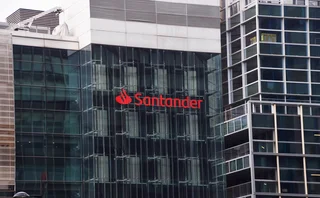
FSA wants more effective risk governance
Chief executive of the FSA has spoken of the need for financial firms to create more robust risk management and governance structures
Sants said the crisis had demonstrated that "there are some management decisions that have revealed a degree of incompetence, and at times a rather cavalier approach regarding risk management. The necessary challenge was missing from governance structures, in particular boards, and there may well be questions that can reasonably be asked about the openness and thus, arguably, the integrity of firms dealings with regulators, shareholders and their customers."
Sants stopped short of calling for a complete overhaul of the current governance structure however. "The structure of governance in financial companies does not need radical overhaul. The attitudes and competence of the individuals who conduct that governance does. In particular, we need to create governance that fosters challenge without creating conflict. The effectiveness of governance is the key issue and addressing this challenge is the responsibility of all of us, not just regulators and boards."
He stressed, however, that "this by no means weakens our fundamental view that firms' senior management carry primary responsibility for their actions and their resulting consequences."
The FSA is not seeking to establish non-executive directors as a competing governance mechanism against the executive; rather its aim is to ensure that these both function more effectively. The FSA has stated that it continues to support the 'unitary board' model but, as Sants said: "It must be recognised that such a structure runs the risk of encouraging the herd instinct both in the sense of encouraging 'follow the leader' behaviour and in the sense of the reluctance to 'break away from the pack' and express an independent view."
As part of the Significant Influence Function (SIF) review, the FSA has introduced interviews for candidates for a number of the key functions in an authorised firm. The presumption is that any application submitted by a high-impact firm for the roles of chair, CEO, finance director or CRO/risk director will result in an interview. Other SIF candidates may also be interviewed at the supervisor's discretion.
In the first six months of the enhanced approval process, 51 SIF interviews were carried out. In a number of cases applications were or are being refused, as the FSA was not satisfied the candidates had demonstrated fitness and propriety. The FSA has published a consultation paper in December 2008, which outlines a number of proposed changes to significant influence controlled functions under its approved persons regime. The authority also expects to publish a further statement on this alongside Sir David Walker's review of governance.
Only users who have a paid subscription or are part of a corporate subscription are able to print or copy content.
To access these options, along with all other subscription benefits, please contact info@risk.net or view our subscription options here: http://subscriptions.risk.net/subscribe
You are currently unable to print this content. Please contact info@risk.net to find out more.
You are currently unable to copy this content. Please contact info@risk.net to find out more.
Copyright Infopro Digital Limited. All rights reserved.
As outlined in our terms and conditions, https://www.infopro-digital.com/terms-and-conditions/subscriptions/ (point 2.4), printing is limited to a single copy.
If you would like to purchase additional rights please email info@risk.net
Copyright Infopro Digital Limited. All rights reserved.
You may share this content using our article tools. As outlined in our terms and conditions, https://www.infopro-digital.com/terms-and-conditions/subscriptions/ (clause 2.4), an Authorised User may only make one copy of the materials for their own personal use. You must also comply with the restrictions in clause 2.5.
If you would like to purchase additional rights please email info@risk.net
More on Risk management
Quant Finance Master’s Guide 2025
Risk.net’s guide to the world’s leading quant master’s programmes, with the top 25 schools ranked
Regionals built first-line defences pre-CrowdStrike
In-business risk teams vary in size and reporting lines, but outage fears are a constant
Op risk data: Santander in car crash of motor-finance fail
Also: Macquarie fined for fake metals trade flaws, Metro makes AML misses, and Invesco red-faced over greenwashing. Data by ORX News
Public enemy number one: the threat to information security
Nearly half of domestic and regional banks report risk appetite breaches amid heightened sense of insecurity
Credit risk transfer, with a derivatives twist
Dealers angle to revive market that enables them to offload counterparty exposures, freeing up capital
Op Risk Benchmarking 2024: the banks
As threats grow and regulators bore down, focus shifts to the first line
Fed stress-testing operational readiness of discount window
Experts say consultation on improved ops should be accompanied by focus on willingness to borrow
Millennium risk manager defends leverage in basis trade
“Gross notional measures don’t equate to market risk,” says Scott Rofey







